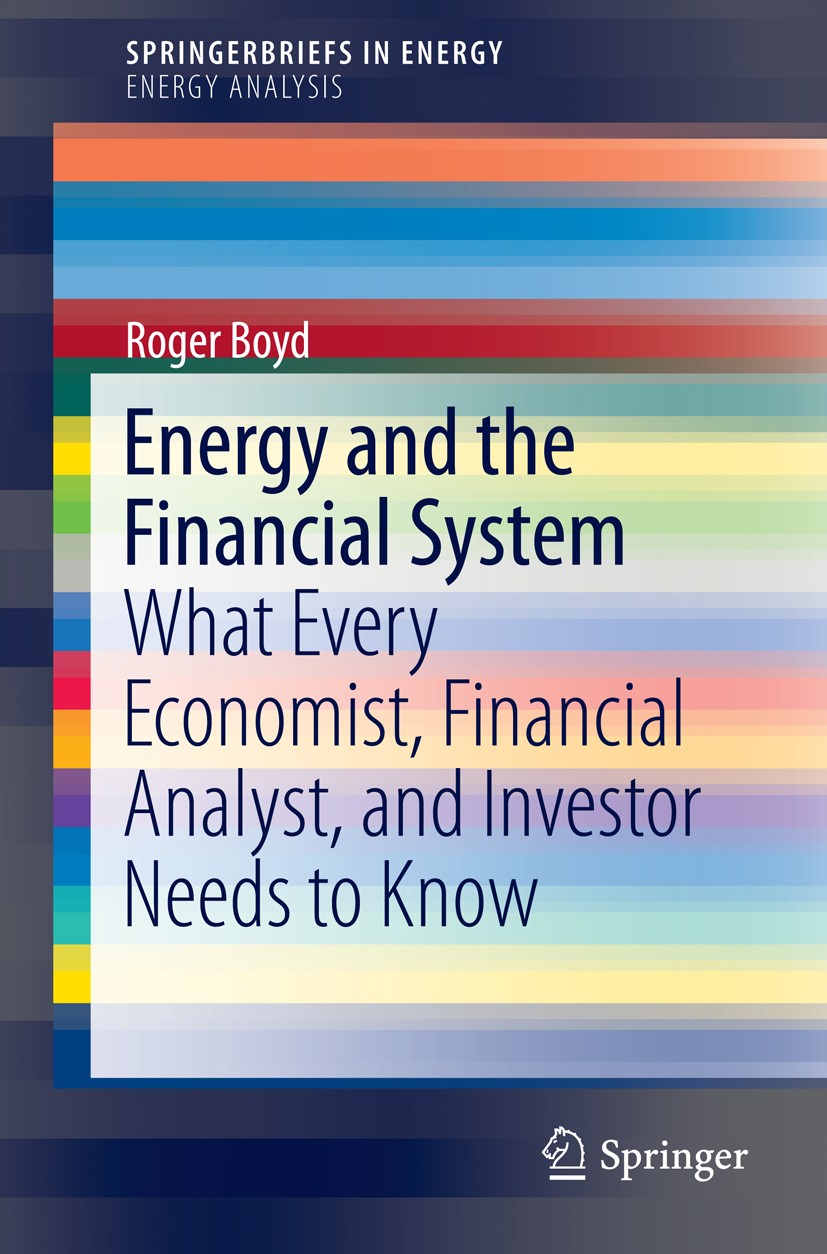| 书目名称 | Energy and the Financial System | | 副标题 | What Every Economist | | 编辑 | Roger Boyd | | 视频video | http://file.papertrans.cn/311/310517/310517.mp4 | | 概述 | Presents a detailed account of what reduced energy flows will mean to the financial system and financial wealth in both developed and developing countries.Provides clear, easy-to-understand explanatio | | 丛书名称 | SpringerBriefs in Energy | | 图书封面 |  | | 描述 | .The modern financial system was developed to support the rapid economic growth that took off about 200 years ago with the phenomenal amounts of cheap energy made available through the exploitation of fossil fuels. As a result, its viability is completely dependent upon the continuation of that growth. Unfortunately, the more recent fossil fuel discoveries, especially for oil, have tended to have lower production levels than earlier ones. In addition, greater amounts of energy are required to extract the fossil fuels leading to less net energy available for society. The Energy Return On Investment (EROI) for oil has fallen from 30:1 in the 1970‘s to 10:1 today. Thus, newer energy finds produce lower extraction rates and more of the energy provided is offset by the energy used in the extraction processes. The result has been economic stagnation or even contraction, with growth in China and India etc. only possible due to the extensive use of local coal reserves, and recession-induced drops in OECD country energy use. Renewable sources of energy will not be able to expand fast enough to replace the 87% of energy supplies provided by fossil fuels, and apart from hydro and wind, tend t | | 出版日期 | Book 2013 | | 关键词 | EROI; EROI Oil Production; Economics and Thermodynamics; End of Cheap Energy; Energy Dependence Economy; | | 版次 | 1 | | doi | https://doi.org/10.1007/978-3-319-04238-1 | | isbn_softcover | 978-3-319-04237-4 | | isbn_ebook | 978-3-319-04238-1Series ISSN 2191-5520 Series E-ISSN 2191-5539 | | issn_series | 2191-5520 | | copyright | Roger Boyd 2013 |
The information of publication is updating

|
|
 |Archiver|手机版|小黑屋|
派博传思国际
( 京公网安备110108008328)
GMT+8, 2026-2-9 14:06
|Archiver|手机版|小黑屋|
派博传思国际
( 京公网安备110108008328)
GMT+8, 2026-2-9 14:06


